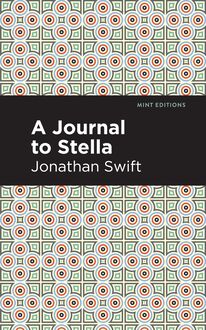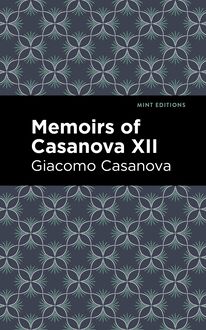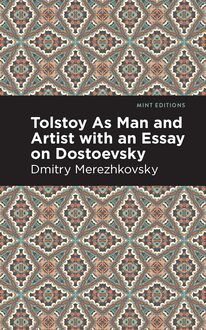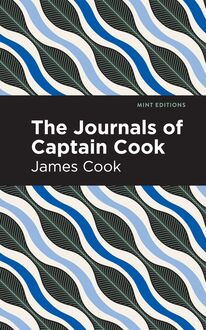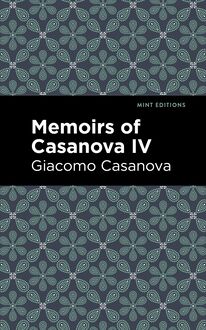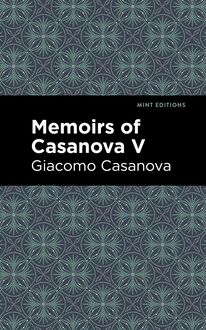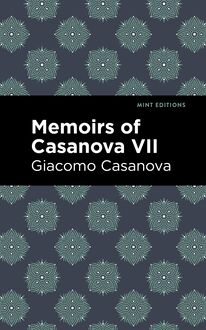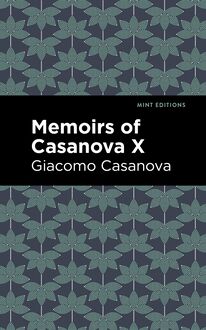-
 Univers
Univers
-
 Ebooks
Ebooks
-
 Livres audio
Livres audio
-
 Presse
Presse
-
 Podcasts
Podcasts
-
 BD
BD
-
 Documents
Documents
-
- Cours
- Révisions
- Ressources pédagogiques
- Sciences de l’éducation
- Manuels scolaires
- Langues
- Travaux de classe
- Annales de BEP
- Etudes supérieures
- Maternelle et primaire
- Fiches de lecture
- Orientation scolaire
- Méthodologie
- Corrigés de devoir
- Annales d’examens et concours
- Annales du bac
- Annales du brevet
- Rapports de stage
La lecture à portée de main
Vous pourrez modifier la taille du texte de cet ouvrage
Découvre YouScribe en t'inscrivant gratuitement
Je m'inscrisDécouvre YouScribe en t'inscrivant gratuitement
Je m'inscrisEn savoir plus
Vous pourrez modifier la taille du texte de cet ouvrage
En savoir plus

Description
We of the Never Never (1908) is an autobiographical novel by Jeannie Gunn. Based on her experience accompanying her husband Aeneas to the remote cattle station of Elsey, Gunn’s novel is a fascinating masterpiece of Australian literature that explores the landscape of the continent’s Northern Territory while depicting the tense relationship between white settlers and the Aboriginal people they displaced. Sympathetic and utterly human, Gunn’s voice is a testament to her bravery as the first woman to settle in the Mataranka area, where she lived for just over a year until her husband’s tragic death from malaria. “To begin somewhere near the beginning, the Măluka—better known at that time as the new Boss for the Elsey—and I, his ‘missus,’ were at Darwin, in the Northern Territory, waiting for the train that was to take us just as far as it could—one hundred and fifty miles—on our way to the Never-Never. It was out of town just then, up-country somewhere, billabonging in true bush-whacker style, but was expected to return in a day or two, when it would be at our service.” Determined to follow her husband wherever he goes, “little Missus” braves the harsh trek to the distant cattle station where he has been appointed overseer. Over hundreds of miles on horseback, they observe for the first time the natural beauty of some of the wildest landscapes on Earth. Although the local cattle drovers are initially wary of her presence, the narrator proves herself as a courageous and hardworking woman, a friend of settlers and Aboriginal people alike. With a beautifully designed cover and professionally typeset manuscript, this edition of Jeannie Gunn’s We of the Never Never is a classic work of Australian literature reimagined for modern readers.
Sujets
Informations
| Publié par | Mint Editions |
| Date de parution | 21 juin 2021 |
| Nombre de lectures | 0 |
| EAN13 | 9781513293981 |
| Langue | English |
| Poids de l'ouvrage | 1 Mo |
Informations légales : prix de location à la page 0,0550€. Cette information est donnée uniquement à titre indicatif conformément à la législation en vigueur.
Extrait
We of the Never Never
Jeannie Gunn
We of the Never Never was first published in 1908.
This edition published by Mint Editions 2021.
ISBN 9781513291130 | E-ISBN 9781513293981
Published by Mint Editions®
minteditionbooks .com
Publishing Director: Jennifer Newens
Design & Production: Rachel Lopez Metzger
Project Manager: Micaela Clark
Typesetting: Westchester Publishing Services
C ONTENTS T O T HE P UBLIC P RELUDE C HAPTER 1 C HAPTER 2 C HAPTER 3 C HAPTER 4 C HAPTER 5 C HAPTER 6 C HAPTER 7 C HAPTER 8 C HAPTER 9 C HAPTER 10 C HAPTER 11 C HAPTER 12 C HAPTER 13 C HAPTER 14 C HAPTER 15 C HAPTER 16 C HAPTER 17 C HAPTER 18 C HAPTER 19 C HAPTER 20 C HAPTER 21 C HAPTER 22 C HAPTER 23 C HAPTER 24 C HAPTER 25 AND L AST
T O T HE P UBLIC
I t is with the full consent of the bush-folk that this one year of their lives—the year of 1902—is given to the world.
“Tell ’em anything you like,” they said, one and all, unconsciously testifying to their single-heartedness. And in the telling I have striven to give that year as I found it.
At every turn the bush-folk have helped me; verifying statements and furnishing details required with minute exactness; while I am indebted to Mr. W. Holtze, Mr. G. G. Jaensch, “Mine Host,” and the Quiet Stockman for the photographic plates with which this book is illustrated.
Jeannie Gunn.
Hawthorn,
October 1907
P RELUDE
W e—are just some of the bush-folk of the Never-Never.
Distinct in the foreground stand:
The M ă luka, The Little Missus, The Sanguine Scot, The Head Stockman, The Dandy, The Quiet Stockman, The Fizzer, Mine Host, The Wag, Some of our Guests, A few black “boys” and lubras, A dog or two, Tam-o’-Shanter, Happy Dick, Sam Lee, and last, but by no means least, Cheon—the ever-mirthful, ever-helpful, irrepressible Cheon, who was crudely recorded on the station books as cook and gardener.
The background is filled in with an ever-moving company—a strange medley of Whites, Blacks, and Chinese; of travellers, overlanders, and billabongers, who passed in and out of our lives, leaving behind them sometimes bright memories, sometimes sad, and sometimes little memory at all.
And All of Us, and many of this company, shared each other’s lives for one bright, sunny year, away Behind the Back of Beyond, in the Land of the Never-Never; in that elusive land with an elusive name—a land of dangers and hardships and privations yet loved as few lands are loved—a land that bewitches her people with strange spells and mysteries, until they call sweet bitter, and bitter sweet. Called the Never-Never, the M ă luka loved to say, because they, who have lived in it and loved it Never-Never voluntarily leave it. Sadly enough, there are too many who Never-Never do leave it. Others—the unfitted—will tell you that it is so called because they who succeed in getting out of it swear they will Never-Never return to it. But we who have lived in it, and loved it, and left it, know that our hearts can Never-Never rest away from it.
Chapter 1
To begin somewhere near the beginning, the M ă luka—better known at that time as the new Boss for the Elsey—and I, his “missus,” were at Darwin, in the Northern Territory, waiting for the train that was to take us just as far as it could—one hundred and fifty miles—on our way to the Never-Never. It was out of town just then, up-country somewhere, billabonging in true bush-whacker style, but was expected to return in a day or two, when it would be at our service.
Jack, the Quiet Stockman, was out at the homestead, “seeing to things” there. The Sanguine Scot, the Head Stockman, and the Dandy, were in at the Katherine, marking time, as it were, awaiting instructions by wire from the M ă luka, while some of the Company “put finishing touches” to their New Year celebrations. And every one, with, of course, the exception of those in Darwin, was blissfully unconscious of even the existence of the M ă luka’s missus. Knowing the M ă luka by repute, however, every one was agreed that the “Elsey had struck it lucky,” until the telegraph wire, whispering the gossip of Darwin to the Katherine, whispered that the “new Boss for the Elsey had been and gone and married a missus just before leaving the South, and was bringing her along with him.” Then the Sanguine Scot was filled with wrath, the Company with compassion, while the Dandy’s consternation found relief in a dismayed “Heavens above!” (The Dandy, by the way, was only a dandy in his love of sweet, clean clothes and orderly surroundings. The heart of the man had not a touch of dandyism in it.) The Head Stockman was absent in his camp. Had he been present, much might have been said on the “advantages of having a woman about the place.” The Wag, however, retained his usual flow of speech and spirits.
“Buck up, chaps!” he chuckled encouraging! “They’re not all snorters, you know. You might have the luck to strike one of the ‘ministering angel variety.’ ”
But the Sanguine Scot had been thinking rapidly, and with characteristic hopefulness, felt he had the bull by the horns. “We’ll just have to block her, chaps; that’s all,” he said. “A wire or two should do it”; and, inviting the Dandy “to come and lend a hand,” led the way to the telegraph office; and presently there quivered into Darwin the first hint that a missus was not wanted at the Elsey.
“Would advise leaving wife behind till homestead can be repaired,” it said; and, still confident of success, Mac felt that “ought to do the trick.” “If it doesn’t,” he added, “we’ll give her something stronger.”
We in Darwin, having exhausted the sight-seeing resources of the little town, were wishing “something interesting would happen,” when the message was handed to the M ă luka.
“This may do as a stopgap,” he said, opening it, adding as he read it, “It looks brimful of possibilities for interested onlookers, seeing it advises leaving the wife behind.” The M ă luka spoke from experience, having been himself an interested onlooker “down south,” when it had been suggested there that the wife should be left behind while he spied out the land; for although the M ă luka knew most of the Territory, he had not yet been to the Elsey Cattle Station.
Preferring to be “the interested onlooker” myself this time, when we went to the telegraph office it was the M ă luka who wired: “Wife coming, secure buggy”, and in an incredibly short space of time the answer was back: “No buggy obtainable.”
Darwin looked interested. “Mac hasn’t wasted much time in making inquiries,” it said.
“Or in apologies or explanations,” the M ă luka added shortly, and sent in reply: “Wife can ride, secure suitable mount.”
But the Sanguine Scot’s fighting blood was up, and almost immediately the wire rapped out: “No side-saddle obtainable. Stock horses all flash”; and the onlookers stared in astonishment.
“Mac’s in deadly earnest this time,” they said, and the M ă luka, with a quiet “So am I,” went back to the telegraph.
Now, in the Territory everybody knows everybody else, but particularly the telegraph people; and it often happens that when telegrams of general interest are passing through, they are accompanied by confidential asides—little scraps of harmless gossip not intended for the departmental books; therefore it was whispered in the tail of the last message that the Katherine was watching the fight with interest, was inclined to “reckon the missus a goer,” and that public sympathy was with the stockman—the Katherine had its women-folk and was thankful; but the Katherine knew that although a woman in a settlement only rules her husband’s home, the wife of a station-manager holds the peace and comfort of the stockmen in the hollow of her hand.
“Stock horses all flash,” the Sanguine Scot said, and then went out and apologised to an old bay horse. “We had to settle her hash somehow, Roper, old chap,” he said, stroking the beautiful neck, adding tenderly as the grand old head nosed into him: “You silly old fool! You’d carry her like a lamb if I let you.”
Then the M ă luka’s reply came, and Mac whistled in amazement. “By George!” he said to those near him, “she is a goer, a regular goer”; and after much careful thought wired an inane suggestion about waiting until after the Wet.
Darwin laughed outright, and an emphatic: “Wife determined, coming Tuesday’s train,” from the M ă luka was followed by a complete breakdown at the Katherine.
Then Darwin came in twos and threes to discuss the situation, and while the men offered every form of service and encouragement, the women-folk spoke of a woman “going bush” as “sheer madness.” “Besides, no woman travels during the Wet,” they said, and the M ă luka “hoped she would prove the exception.”
“But she’ll be bored to death if she does reach the homestead alive,” they prophesied; and I told them they were not very complimentary to the M ă luka.
“You don’t understand,” they hastened to explain. “He’ll be camping out most of his time, miles away from the homestead,” and I said, “So will I.”
“So you think,” they corrected. “But you’ll find that a woman alone in a camp of men is decidedly out of place”; and I felt severely snubbed.
The M ă luka suggested that he might yet succeed in persuading some suitable woman to come out with us, as maid or companion; but the opposition, wagging wise heads, pursed incredulous lips, as it declared that “no one but a fool would go out there for either love or money.” A prophecy that came true, for eventually we went “bush” womanless.
The M ă luka’s eyes twinkled as he listened. “Does the cap fit, little ’un?” he asked; but the women-folk told him that it was not a matter for joking.
“Do you know there is not another white woman within a hundred-mile radius?” they asked; and the M ă luka pointed out that it was not all disadvantage for a woman to be alone in a world of men. “The men who form her world are generally better and truer men, because the woman in their midst is dependent on them alone, f
-
 Univers
Univers
-
 Ebooks
Ebooks
-
 Livres audio
Livres audio
-
 Presse
Presse
-
 Podcasts
Podcasts
-
 BD
BD
-
 Documents
Documents
-
Jeunesse
-
Littérature
-
Ressources professionnelles
-
Santé et bien-être
-
Savoirs
-
Education
-
Loisirs et hobbies
-
Art, musique et cinéma
-
Actualité et débat de société
-
Jeunesse
-
Littérature
-
Ressources professionnelles
-
Santé et bien-être
-
Savoirs
-
Education
-
Loisirs et hobbies
-
Art, musique et cinéma
-
Actualité et débat de société
-
Actualités
-
Lifestyle
-
Presse jeunesse
-
Presse professionnelle
-
Pratique
-
Presse sportive
-
Presse internationale
-
Culture & Médias
-
Action et Aventures
-
Science-fiction et Fantasy
-
Société
-
Jeunesse
-
Littérature
-
Ressources professionnelles
-
Santé et bien-être
-
Savoirs
-
Education
-
Loisirs et hobbies
-
Art, musique et cinéma
-
Actualité et débat de société
- Cours
- Révisions
- Ressources pédagogiques
- Sciences de l’éducation
- Manuels scolaires
- Langues
- Travaux de classe
- Annales de BEP
- Etudes supérieures
- Maternelle et primaire
- Fiches de lecture
- Orientation scolaire
- Méthodologie
- Corrigés de devoir
- Annales d’examens et concours
- Annales du bac
- Annales du brevet
- Rapports de stage


